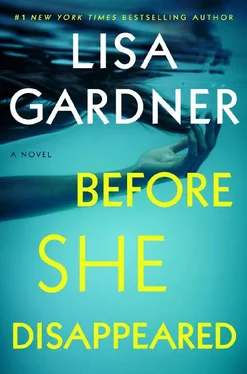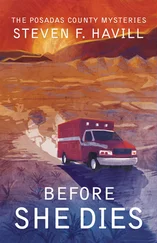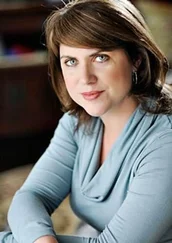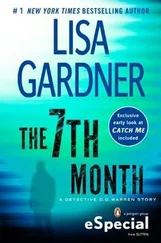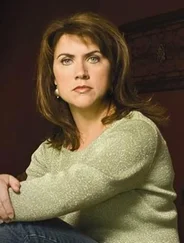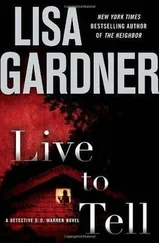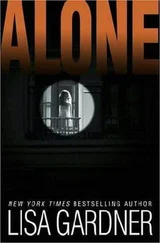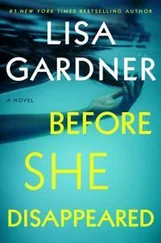One of us , I mentally fill in for him.
“No one is going to talk to her,” Emmanuel continues relentlessly. “She will piss people off. How does that bring my sister back?”
His voice raises stridently at the end, his anger a testimony to his grief. I can tell his aunt understands, just as she can tell I understand. Briefly, we are bonded. Two older, wiser women sorry for the pain the world is causing our children.
“I’m happy you say you’re satisfied with the police efforts,” I offer. “The truth remains, it’s been nearly a year. The police have no new leads or you would’ve heard about them. So even if you don’t like me or don’t understand me . . . What do you have to lose?” I stare Emmanuel in the eye, as he seems the most hostile. “You want your sister back. I want to help. Why not use me?”
Emmanuel doesn’t have an answer for this; judging from his expression, however, he still isn’t convinced. His aunt, though, is slowly nodding. I wouldn’t say she believes in me either, but she’s clearly a practical woman. Forged by a childhood of deprivation and an adulthood of uncertainty, she appears moved by my logic.
Deep sorrow brackets her eyes. Eleven months later, she’s getting desperate. She doesn’t share it with Emmanuel; they are both staying strong for each other. Now I’m here, upsetting their fragile ecosystem by offering hope. Emmanuel isn’t ready, but Aunt Guerline knows better than to let it go.
Securing permission is not always this easy. I’ve been thrown out of homes. Had beer bottles tossed at my head, vicious threats spewed in my face. For some, rage is easier to handle. And many families do have secrets to hide.
I don’t think Guerline is one of those people. Emmanuel . . . He knows more than he’s saying, I’d bet. But I’d also bet he thinks he’s protecting his sister with his silence, meaning my real job will be convincing him otherwise.
I rise. I don’t want to overwhelm Guerline or alienate Emmanuel. Not when I can tell both truly want answers.
I focus on Guerline. “Ricardo, the community officer. Can you give me his information and let him know I’ll be in touch? Or I can give you mine to pass along to him if you prefer?”
Guerline nods, and I scribble down the number to my Tracfone.
“If you could call Angelique’s school, give permission for the principal or a school counselor to speak with me?”
Another faint nod.
“I’m living above Stoney’s,” I repeat now, seeing the exhaustion starting to take over. “I also work there several nights a week. If you need to reach me in person, please feel free to find me there. I am not just here for Angelique but also for you.”
Emmanuel mutters something sardonic under his breath. But Guerline grasps my hand firmly this time. I am unexpected and unfamiliar to her, but she is a woman with nothing to lose.
This is how most cases start. With a bubble of desperate hope and tentative trust. Where things go from here, how Guerline and Emmanuel might view me months from now . . .
Emmanuel walks me back downstairs. He doesn’t speak a word, relying on the rigid set of his shoulders to radiate disapproval.
“You love Angelique,” I state softly when we reach the lobby. “She’s a good older sister. She looks out for you.”
He glares at me, but I see a bright sheen in his eyes. The pain he’s trying hard not to show.
“You really done this before?” he asks roughly.
“Many times.”
“How many people have you actually found?”
“Fourteen.”
He purses his lips, clearly taken aback by that number.
“Good night, Emmanuel. And if you think of anything I should know.” I stick out my hand. This time he takes it.
Then I exit the triple, out into the crisp fall night, where the sun has set. Bright lights wink in the distance. But on this block no streetlights are working. Not the best idea for a lone woman to be walking around after dark, but I hardly have a choice.
I square my shoulders and head briskly back toward Stoney’s, grateful it hadn’t occurred to Emmanuel to ask the next logical question:
Not just how many people I’d found but how many people I’d brought home alive.
None.
At least, not yet.
Leaving Guerline’s apartment, I can just make out shadowy clusters of people on front stoops as I pass. I walk with my hands tucked in the front pockets of my olive-green jacket. It would be warmer if I buttoned it up, but I don’t want to risk any restrictions to my movements. Especially as the first shape peels off from a front porch, exits the chain-link fence, and falls in step behind me.
I don’t pause or turn around. I head straight to the end of the block, where the red crossing light forces me to draw up short. Footsteps behind me. Closer, closer.
I move to the side, clearing an opening beside me. The second person stops in the empty space. Black male. Anywhere between eighteen and twenty-five. Tall, broad-shouldered with an oversized Patriots hoodie that makes him appear even taller and broader.
He glances at me. I keep my gaze straight ahead.
The crossing light turns green. He steps off the curb, one of his strides easily twice the length of my own.
I’m just starting to relax, walking now in his wake, when I realize I can still hear footsteps behind me. A second set, which I’m immediately paranoid has been there all along. I make it across the intersection only to realize the next block of triple-deckers is as dimly lit and ominous as the last.
Turn around and confront the person? Pick a door and pretend it’s my final destination?
Options. I should pick one, exercise some kind of caution as the footsteps quickly close the gap.
I whirl at the last second, preparing to meet the possible threat head-on.
The Black girl behind me draws up short. She’s wearing skinny jeans, a tight-fitting ribbed cotton shirt, and huge silver hoops, along with a black leather jacket and matching stiletto-heeled boots.
She lifts a finely etched eyebrow. “You nuts, lady? This is not a place to be walking alone after dark. Yo, Jazz, hold up.”
Then she scoots around me, catching up with the broad-shouldered kid and looping her arm through his. They saunter down the block.
I tell myself I’m okay.
Mostly, I bolt quickly down the maze of streets to Stoney’s bar.
* * *
I’m a recovering addict. It’s taken me a couple of tries, but I’ve now been sober for nine years, seven months, and eighteen days. And yet I still love walking through the doors and inhaling the scent of a tried-and-true local pub. It feels like coming home.
Many of my fellow AAs manage their recovery by avoiding booze and any situation involving alcohol. In the beginning I did, too. Well, kind of. I spent hours circling the outside of my local watering hole, wanting desperately to go in, willing myself to stay outside. That’s how I met Paul. He recognized me, what I was going through. And for a while, he believed in me, when I wasn’t ready yet to believe in myself.
I did the ninety-in-ninety drill. Got a sponsor. Got a new sponsor. Decided the program wasn’t for me. Worried sobriety wasn’t for me. Mostly, quietly, desperately understood that being me wasn’t for me. I didn’t know how to do it. I never had.
After more than a dozen years of AA and two reboots, I know firsthand there’s more than one path to sobriety. AA’s simple truth, however—admitting helplessness over alcohol and finding strength through a higher power—remains the best starting point that I’ve experienced. I attend my meetings. I read from the Big Book. I find comfort in the company of people living honest, messy, difficult lives without taking a drink and yet being okay. Even finding joy.
Читать дальше
